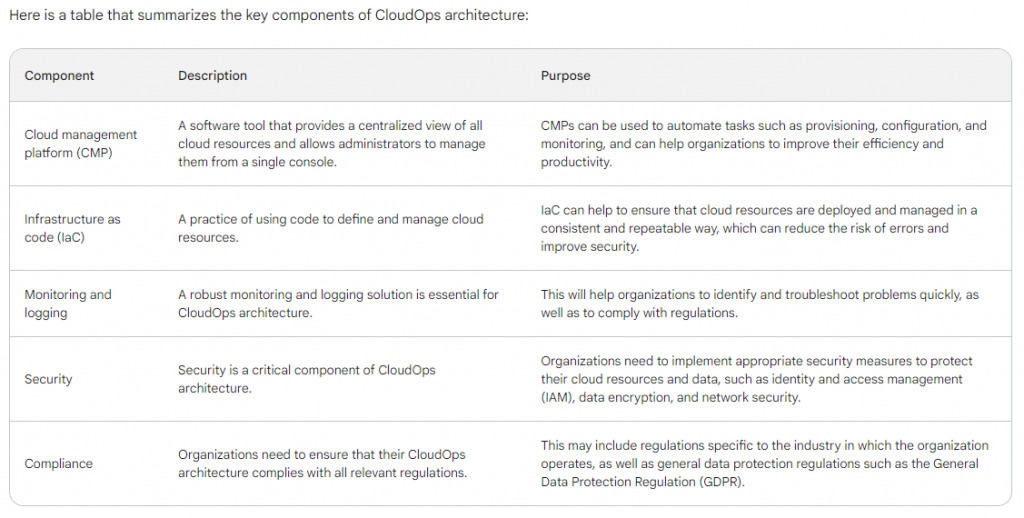
Are you tired of hearing tech jargon thrown around without any explanation? Do you want to understand what CloudOps architecture is but don’t know where to start? Look no further, because this blog article is here to help you understand everything you need to know about CloudOps architecture.
Understanding the Basics of CloudOps Architecture
First thing’s first, what is CloudOps architecture? Simply put, it is a methodology for managing and operating cloud infrastructure. It focuses on the operational aspects of cloud computing, such as deployment, automation, and monitoring.
CloudOps architecture is designed to optimize the use of cloud resources, reduce costs, and improve efficiency. It allows organizations to scale their infrastructure quickly and easily, without the need for manual intervention.
The Components of CloudOps Architecture
There are several key components of CloudOps architecture, including:
Cloud Infrastructure
This is the foundation of CloudOps architecture. It includes all the hardware and software resources needed to support cloud computing, such as servers, storage devices, and networking equipment.
Cloud Management Platform
This is the software layer that enables organizations to manage their cloud infrastructure. It provides tools for deploying, scaling, and monitoring cloud resources.
Automation Tools
Automation is a key aspect of CloudOps architecture. It allows organizations to reduce the amount of manual intervention needed to manage cloud resources. Automation tools can be used for tasks such as provisioning new instances, scaling resources, and performing backups.
Monitoring and Analytics
Monitoring and analytics tools allow organizations to keep track of their cloud infrastructure and identify potential issues before they become major problems. They can also be used to optimize resource utilization and improve performance.
Benefits of CloudOps Architecture
Now that we understand what CloudOps architecture is and its key components, let’s take a look at some of the benefits it can provide:
Improved Efficiency
CloudOps architecture allows organizations to automate many of the tasks involved in managing cloud infrastructure, reducing the amount of manual intervention needed. This can improve efficiency and reduce the risk of errors.
Scalability
CloudOps architecture is designed to allow organizations to scale their infrastructure quickly and easily. This can be especially useful during periods of high demand, when rapid scaling is needed.
Cost Savings
CloudOps architecture can help organizations reduce their cloud infrastructure costs by optimizing resource utilization and reducing the need for manual intervention.
Improved Performance
By monitoring and optimizing cloud resources, organizations can improve the performance of their applications and services.
Conclusion
In conclusion, CloudOps architecture is a methodology for managing and operating cloud infrastructure. It focuses on the operational aspects of cloud computing, such as deployment, automation, and monitoring. By using CloudOps architecture, organizations can improve efficiency, scalability, cost savings, and performance. So, if you’re looking to optimize your cloud infrastructure, CloudOps architecture may be the solution you’ve been searching for.

👤 About the Author
Ashwani is passionate about DevOps, DevSecOps, SRE, MLOps, and AiOps, with a strong drive to simplify and scale modern IT operations. Through continuous learning and sharing, Ashwani helps organizations and engineers adopt best practices for automation, security, reliability, and AI-driven operations.
🌐 Connect & Follow:
- Website: WizBrand.com
- Facebook: facebook.com/DevOpsSchool
- X (Twitter): x.com/DevOpsSchools
- LinkedIn: linkedin.com/company/devopsschool
- YouTube: youtube.com/@TheDevOpsSchool
- Instagram: instagram.com/devopsschool
- Quora: devopsschool.quora.com
- Email– contact@devopsschool.com

